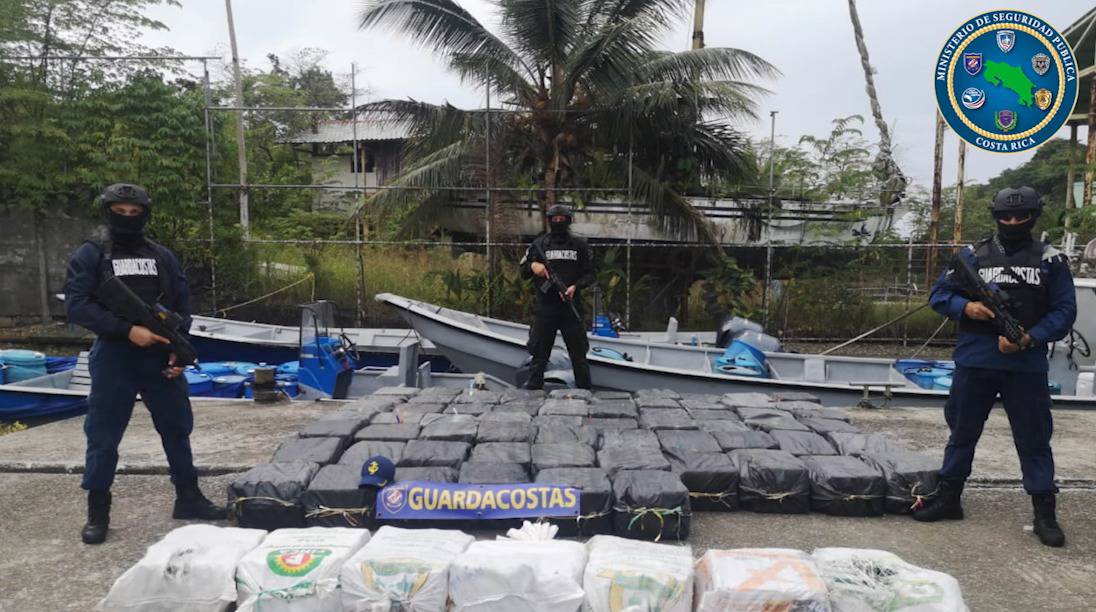Dutch media has spotlighted Costa Rica’s growing role in the global cocaine trade, pointing to increased shipments to Europe and a sharp rise in local violence tied to drug gangs. The Dutch Broadcasting Foundation, or NOS, detailed how Costa Rica, long celebrated for its traquility, now serves as a key transit hub for South American cartels.
Drugs hide in fruit containers like bananas and pineapples, which speed through customs to avoid spoilage. Thousands of kilograms get seized each year in Costa Rica, and the country ranks fourth in cocaine interceptions in the Netherlands, behind Brazil, Ecuador, and Panama.
Since the 2019 opening of the Moín port in Limón province, Costa Rica’s involvement in Latin America’s drug routes has expanded. NOS reports that local gangs, drawn by the profits, have fueled conflicts that affect everyday people.
Violence has surged as a result. Homicides jumped 53 percent from 2020 to 2023, hitting a record 907 murders in 2023. This year, officials project over 900 killings again. Gangs target rivals in poor neighborhoods, where fights over territory spill into communities.
High unemployment and poverty in Limón make residents vulnerable. Criminal groups recruit teens who seek quick cash over steady jobs. These young people, facing limited options, fall into the trade easily. One police director noted that gangs exploit these conditions, pulling in those who cannot wait for better prospects.
Critics say the government falls short on police funding. Budgets shrank until 2024, leaving forces under-resourced. Border checks remain weak, especially along the Pacific coast where much cocaine enters. More efforts must go toward guiding youth away from crime and building opportunities.
Randall Zuñiga, head of Costa Rica’s investigative police, stressed the need for change. “The government invests too little in police,” he said. “We need stronger border controls and programs to offer young people a real path forward.”
Tourists face little direct risk, as clashes stay in marginalized areas. Still, any spillover could harm Costa Rica’s image as a safe haven.
Recent actions show authorities fighting back. A couple of day ago, police raided the South Caribbean Cartel, the largest drug operation ever taken down in the country. Over 1,200 agents hit 64 sites across provinces, arresting 33 suspects and seizing assets worth billions of colones, including luxury properties, vehicles, boats, and cash.
The cartel supplied cocaine and marijuana nationwide, shipping to the U.S. and Europe. It ran like a business with armed units, finance teams, and legal cover. Leaders Luis Manuel Picado Grijalba, known as Shock, and his brother Jordi await extradition to the U.S. Shock sits in a UK jail, while Jordi remains in Costa Rican custody.
Ties reached into our government, with family links to a former fisheries institute director. The group’s enforcers linked to 78 homicides, training hitmen in Limón. Officials called it a transnational threat that drove much of the violence in hotspots like Limón and the capital.
Michael Soto, deputy director of the Judicial Investigation Agency, described the cartel as the main provider fueling street-level fights. “This group supplied all the other criminals causing violence in Limón, Pococí, or San José,” he said. “It operated on a massive scale, not small-time dealing.”
The raid stemmed from a 2022 probe after a massacre in Limón. Forces confiscated 13.7 tons of drugs and 68 weapons over the investigation. While the takedown disrupts supply, experts warn it could spark new turf wars as rivals fill the gap.
As European ports like Rotterdam see more shipments from here, local leaders push for international aid to stem the flow. Without it, the cycle of trafficking and killings may persist, testing our country’s resolve to reclaim its stability.






